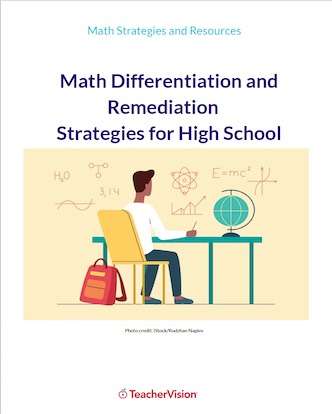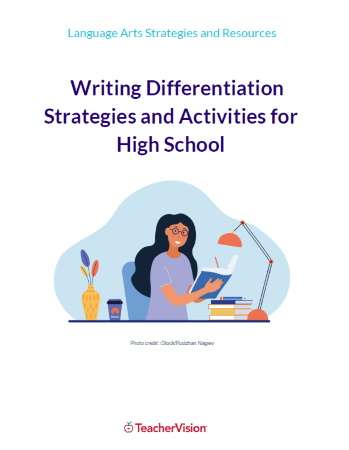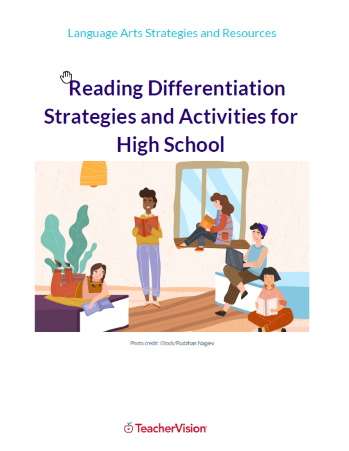WHILE READING THE PLAY
Shakespeare's The Tempest
These activities and writing prompts are designed to aid students' reading and develop their initial reactions to the play. Many of these activities and questions follow up on the themes and ideas explored in the prereading activities.
* As students are reading the play, have them brainstorm what they already know and also what they would like to know, i.e. questions they have about the action and characters. These lists can be displayed in the classroom and can be reviewed at intervals as the students read more of the play. Using the lists generated in brain storm sessions, students can connect what they already know about character and plot, adding new information or generating new questions to begin next day's discussion, moving toward a deeper understanding of the overall themes of the play.
* Have students write their own KWL lists, what they already know and what they would like to know before reading a new section of the play. Share these lists in small groups, and decide together a key question to guide their reading of the next scene. Read the next scene as a group, stopping from time to time to discuss what they are learning. Have each student write a response to the question posed by the group after the complete scene has been read. These questions and answers can then be used for wholeclass discussion.
* Model for the students how to read a key scene. Select one that occurs early in the play, for example a section of Act I, scene ii where Prospero explains their history to Miranda or where he questions Ariel about the events on board the sinking ship.
1. Read orally approximately one page of the scene just as you would read it silently.
2. Go back over the lines, thinking aloud about difficult passages and asking yourself questions. Draw on your background knowledge to make connections.
3. Summarize the action and make connections to some of the themes identified in initial discussions of the play.
4. Have the students, working with partners, try out this technique using the next page of the scene.
5. Discuss with the students how the technique works for them. Ask: What do you like about the technique? What would you rather do? List on the board the strategies suggested by different students, making it clear that different strategies work effectively for individual readers.
6. Follow up by asking students to read another section with a partner, this time using any technique they prefer.
7. After reading, have each student "free write" his or her understanding of the passage, explaining the reading technique tried and indicating the preferred technique. Suggest that students use their reading strategy on the reading assigned for that day.
* Assign sections of the play for dramatic acting using the guidelines described earlier (p. 13 of this guide). Good scenes are:
Act I, i: This scene reveals the characters of Antonio and Gonzalo.
Act I, ii, 375-504: In this scene Miranda and Ferdinand meet.
Act II, i, 225-331: Sebastian and Antonio attempt to murder Alonso and Gonzalo.
Act II, ii: This is the comic scene where Trinculo and Stephano discover Caliban.
Act III, iii, 52-110: Alonso feels guilt at deposing Prospero.
Act V, i, 1-215: Prospero, Alonso, Miranda, and Ferdinand are united.
Reader Response
* Reader response is an excellent technique for helping students understand the play in increasing depth. Have students respond personally, subjectively, and freely to what they have read; however, provide some structure so that students will not be frustrated not knowing where to begin. Invite students to express their reactions to the reading and the ideas of the play by writing a quote from the play on the board or directing students to passages in the play. Have students explain what the quote means to them and how it connects to other ideas they already have about the play. Tell them to write freely for three to five minutes about any ideas the quote brings to mind. Have them share their responses in pairs, small groups, or to start a wholeclass discussion.
The following quotations may lead to rich responses:
Act I
1 "Me (poor man) my library was dukedom large enough." (I, ii, 109-110)
2. "But as 'tis, we cannot miss him. He does make our fire, fetch in our wood, and serves in offices that profit us." (I, ii, 310-313)
3. "You taught me language, and my profit on't is, I know how to curse." (I, ii, 363-364)
4. "Sitting on a bank,
Weeping again the King my father's wrack,
This music crept by me upon the waters,
Allaying both their fury and my passion
With its sweet air." (I, ii, 390-394)
5. "There's nothing ill can dwell in such a temple. If the ill spirit have so fair a house, good things will strive to dwell with't." (I, ii, 457- 459)
Act II
1. I' th' commonwealth I would by contraries
Execute all things. For no kind of traffic
Would I admit; no name of magistrate;
Letters should not be known; riches, poverty,
And use of service, none; contract, succession,
Bourn, bound of land, tilth, vineyard, none;
No use of metal, corn, or wine, or oil;
No occupation; all men idle, all;
And women too, but innocent and pure;
No sovereignty. (II, i, 152-161)
2. "Misery acquaints a man with strange bedfellows." (II, ii, 40-41)
Act III
1. "I would not wish any companion in the world but you; Nor can imagination form a shape, besides yourself, to like of." (III, i, 54-57)
2 "Travelers ne'er did lie, though fools at home condemn 'em." (III, iii, 26-27)
Act IV
1. "All thy vexations were but my trials of thy love, and thou hast strangely stood the test." (IV, i, 5-7)
2. "Do not give dalliance too much the rein; the strongest oaths are straw to th' fire i' th' blood." (IV, i, 51-53)
3 "We are such stuff as dreams are made on, and our little life is rounded with a sleep." (IV, i, 156-157)
4. A devil, a born devil, on whose nature Nurture can never stick; on whom my pains, Humanely taken, all, all lost, quite lost! And as with age his body uglier grows,
So his mind cankers. (IV, i, 188-192)
Act V
1. "The rarer action is in virtue than in vengeance." (V, i, 47-48)
2. "I'll break my staff, bury it certain fathoms in the earth, and deeper than did ever plummet sound I'll drown my book." (V, i, 54-57)
3. "How many goodly creatures are there here! How beauteous mankind is! O brave new world that has such people in't! (V, i, 181-183)
4. "This is as strange a maze as e'er men trod, and there is in this business more than nature was ever conduct of." (V, i, 242-244)
Oral Response
* Students' personal responses to the play can be deepened through wholeclass discussions. The goal of the discussion is not to summarize the plot, but to clarify and deepen understanding of the motives of the characters and the themes of the play. Vary your role throughout the discussion by doing some or all of the following:
1. Ask questions.
2. Keep the discussion focused.
3. Summarize ideas.
4. Be a participant, following the lead of students' questions.
5. Select and adapt any of the following questions to develop the students' own initial responses to the play. These questions can also be used as writing prompts.
Act I
1. Why is it significant that the play begins with a storm at sea?
2. Why does Miranda have such immediate empathy for the men in the ship? Since we learn that she has lived on a deserted island with her father since childhood, where would she have learned these ideas of pity and mercy?
3. Why is she so merciful towards the shipwreck victims but has only contempt and hatred for Caliban? Where and how would she have gotten her ideas?
4. What does it mean that Prospero has to take off his robe, his "magic garment," before he can tell Miranda about her history?
5. Think about how you might tell your own child or a close friend the story of your past. How would you tend to characterize yourself and your actions in your story? What about Prospero's story? Does he take any responsibility for what happened to him? Should he?
6. What crimes does Antonio, Prospero's brother, commit? What motivates him? For which crimes is he most responsible? How do you judge him?
7. In Prospero's questioning of Ariel, we learn that the storm is part of Prospero's design. Does he want to punish the conspirators or lead them to repentance?
8. Ariel was imprisoned by Sycorax. Why? How does the physical description of Sycorax compare to your impressions of Ariel?
9. What connection does Shakespeare establish between outward appearance and inner spirit? Do you think this is true? Why or why not?
10. What is your reaction to Prospero's treatment of Caliban? Does Caliban have a legitimate complaint against Prospero? Why does Prospero keep Caliban as his servant even when he despises him? Why do you think Caliban attempted to "violate the honor" of Miranda? Did he or is this the way his acts were interpreted by Prospero and Miranda?
11. Prospero is happy that when Miranda first sees Ferdinand she is immediately captivated by his appearance? Why? What is his plan?
12. Ferdinand and Miranda fall in love at first sight; Prospero says, "They have changed eyes." Why does this seem feasible, given the emotional state of the two young people?
Act II
1. What type of person is Gonzalo? What was his role in the plot against Prospero? Does his behavior seem consistent with how he acts now?
2. Sebastian and Antonio ridicule Gonzalo. What does this tell us about their characters?
3. What is Gonzalo's idea of the type of government or life style that could be possible on this island? Why does he say this at this time?
4. Antonio incites Sebastian to kill his brother and take the crown of Naples. Why? What does this tell us about Antonio's motives? What does Sebastian's response tell us about him? What could Shakespeare be saying about human nature?
5. Is it surprising that Caliban willingly worships Stephano and desires to give him control of the island when he resents Prospero for usurping what he considers his rightful claim to the island? What does this show about Caliban?
Act III
1. How has Ferdinand's and Miranda's love deepened from their first attraction? What is Shakespeare suggesting about the true nature of love?
2. What does Caliban hope to accomplish by his plot against Prospero? Why does Shakespeare include this subplot mirroring the conspiracy of the nobles?
3. How does the apparition of the banquet affect Alonso and his retinue? How is the banquet used as a symbol? Why aren't the men allowed to eat the food? Is this an effective moment for Ariel to accuse them of their sins?
Act IV
1. How is Ferdinand different from Caliban in his relationship to Miranda? Why does he pledge to keep her honor safe?
2. Why is Miranda's virginity so important to Prospero?
3. What is the overall impact of the Masque-like? How is it supposed to affect the two young lovers? What is its message about the sanctity of the marriage bond?
4. Why does the masque suddenly disappear when Prospero remembers the plot against him by Caliban and his crew? What is Shakespeare suggesting by contrasting these two events?
5. How are Stephano and Trinculo distracted from their plot? What does this show about their natures? What does Caliban think about their behavior?
Act V
1. Why does Prospero decide to show mercy to his enemies? Why is Ariel the first to speak of mercy? Do you think Prospero had planned to forgive them from the beginning?
2. Why does Prospero decide to give up magic? What does his choice show about what he thinks happened in the past? How does he plan to live in the future? What has Prospero learned? Has he changed in any fundamental way or had the change already occurred before the beginning of the action?
3. Are Caliban and Prospero reconciled?
4. Are Alonso, Antonio, and the other conspirators truly sorry for their plot against Prospero? Has their ordeal on the island changed them?





